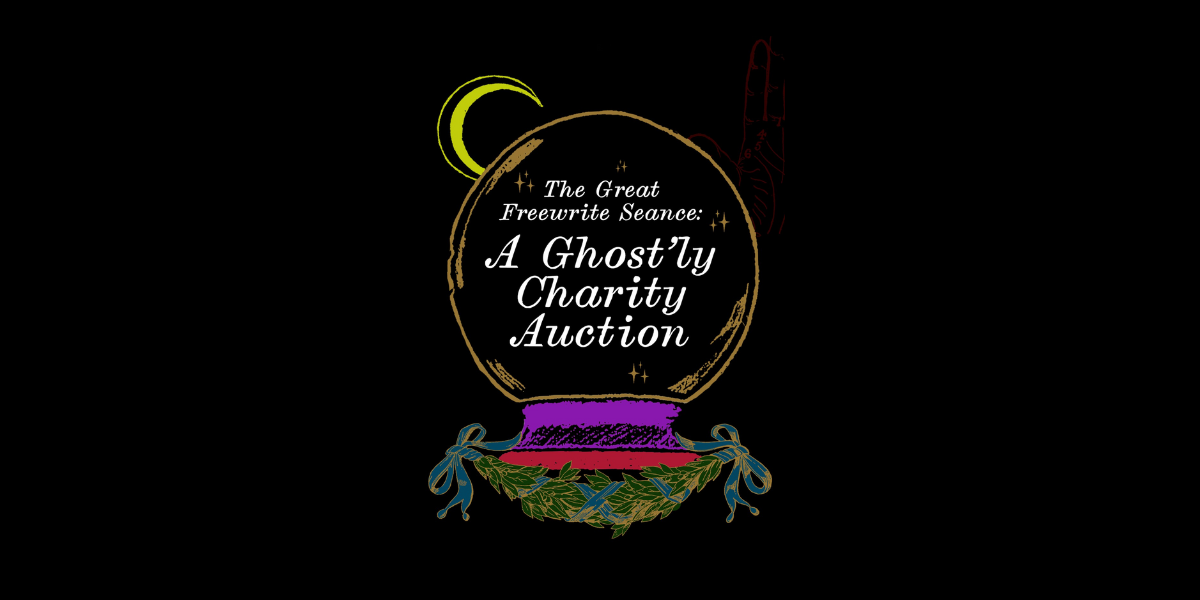Playwrights and screenwriters have always understood the power of dramatic action — but many fiction writers fail to fully harness dramatic writing in novels and short stories. Even if you watch every Hollywood blockbuster and understand how drama works, transferring the principles of dramatic action from scripts to novels isn’t always as straightforward as it sounds.
Personally, I didn’t realize that I was missing out on dramatic writing tools until I was in the second year of my Creative Writing degree and had to complete a module on screenwriting. I’m never going to be a great screenwriter — but I did learn some great dramatic writing skills!
If your writers’ toolbox is lacking a comprehensive set of dramatic writing tools, you’ve come to the right place! Stick around as I take you through a quick masterclass in dramatic writing.
Dramatic Writing Can Turbo-Charge Your Fiction
I’m not kidding when I say that mastering dramatic writing techniques can transform the way you write forever. You don’t have to spend time learning the ins-and-outs of scriptwriting or take time out from writing your novel to pen a play or a movie script. Dramatic writing techniques are totally transferrable — you just need to learn the most important drama-creating skills, and you can start applying them to your novels for maximum effect.
Wanna know a secret that playwrights are loathed to share? The best of the best in playwrights learn their dramatic craft best from the audience’s response to their scripts. If people in the back are nodding off, there’s not enough dramatic action. While it’s not so easy to replicate this lesson with novels or short stories, it is possible.
Try hosting a beta-reader party where you give participants a portion of your novel to read. Watch them as they read — or, if they’re okay with it, you could even video the party to review later. If your participants are distracted — glancing around the room, yawning, looking at their phones, etc. — then your fiction is short on dramatic writing.
Three Dramatic Writing Weapons
Scriptwriters have a ton of dramatic techniques at their disposal, but if I were to cover them all, you’d still be reading this blog a week on Tuesday. Instead of making you wade through all the tools you could possibly want to use, I’ve picked out three tools that will ramp up the drama in your novel — and keep your readers turning the pages.
1. Dramatic Irony — The #1 Tool You Need to Master

Dramatic irony is a technique that screenwriters love to use — and for good reason. It’s a great way of keeping your audience engaged, and the same goes for your readers. But what, I hear you ask, is dramatic irony?
You’ve almost certainly come across dramatic irony before — maybe you’re even using it without knowing the technical name for it. In a nutshell, dramatic irony is when the reader (or audience) knows something that the characters are unaware of. It creates incredible tension because your readers are anticipating the moment when the characters discover the secret. It’s like drawing your reader into a special club — and they love it!
Dramatic irony has been used since the days of Shakespeare (and, actually, before him, too). A great example is in Hamlet. Spoiler alert — Ophelia dies, and while the audience knows, Hamlet doesn’t. He returns home to the sight of a grave being dug — but crafty old Shakespeare doesn’t let him discover the secret until the end of the scene, creating a powerful dramatic irony that has the audience on the edge of their seats.
Your Turn — Practicing The Tool
Take a piece of your own writing — perhaps a scene from your current project or something you’ve written in the past that you’d like to work on improving. Brainstorm how you could introduce a secret or work the plotline around so you can give your readers an insight that you’re going to keep from your characters.
You’ll need to build up the dramatic irony — having the characters discover the secret too early will leave your readers feeling cheated. It can be helpful to create a kind of scene timeline to help you build the right amount of tension and drama in the scene. If you need some guidance, find a copy of Hamlet online and see how Shakespeare does it!
2. Drama in Your Backstory — Eliminate Boring Exposition
In a novel, backstory can be dangerous territory. It’s all too tempting to dump a load of essential information in one go — as if to get it out of the way — but for readers, this can be dry and frustrating. Nothing is more likely to put your readers to sleep than several paragraphs of backstory.
Scriptwriters have to get more creative — unless they’re using a narrator, it’s virtually impossible to do a backstory dump in a play, TV show or movie. Personally, I think it makes it easier to avoid boring exposition when there’s simply nowhere to put it, so scriptwriters have an easier job here. Fiction writers have to be more intentional about expositional creativity.
In scripts, the backstory is often left out completely, leaving the audience to piece together the clues — which automatically makes them more engaged in the play/show/movie. However, sometimes you simply have to provide some kind of backstory because your scenes won’t work without it.
The same is true in fiction — some context is necessary, but you don’t want to have pages that will put your readers to sleep. The answer is to create conflict between two (or more) characters that will allow for the backstory to emerge. You know how when you’re having a row with your family, friends or partner, when things get really tense you both start to bring up the past. Your characters can taunt each other with bits of backstory, snort about details relevant for context, and blurt out truths.
Your Turn — Practicing The Tool
Take a scene from your current project, where you’ve got some backstory. Rewrite the scene so that your characters are at each others’ throats, absolutely furious, anguished or bitter — and use these emotions as vehicles for essential backstory. Play around with the technique until you’re confident in using it.
A word of caution, you have to use this carefully. Don’t have your characters go off into long (boring) tirades/monologues — that’s just as bad as dumping backstory.
3. Letting Dramatic Action Drive Your Scenes
By dramatic action, I don’t mean you have to have your characters acting like James Bond. Rather dramatic action is a force that drives your characters’ actions, their conflicts, their motivations, their fears. But mostly, their conflicts.
What does your character really want? To use dramatic action in your writing, your characters must have strong desires — and those desires will pit them up against other characters (conflict with characters) or against nature (conflict with the world).

When you’re thinking about dramatic action in your scenes, you need to be thinking of powerful verbs — such as conquer, collide, divide, persuade, confess, leave, and so on. Weak character motivations won’t work with dramatic action — and what many of my students fail to understand is that while your characters may have overarching wants or motivations, they also need to have a motivation in every scene. Without motivation to get through the scene, your fiction will fall flat.
Your Turn — Practicing The Tool
Pick a scene in your story that you’re not happy with because it seems like it’s sagging in the middle like a wet paper towel. For this exercise, you’re going to need to pick apart the scene, so this is more about analysis than writing. First, you need to ask yourself what each character wants (is motivated by) in the scene, and how their wants/motivations put them in conflict.
Next, you need to define your dramatic question for this scene (at the end, what will have happened) and then work backwards from this point, defining the types of tactics (use verbs for these) that your opposing characters could use to achieve their goal. You want to build the intensity (tension) in the scene, too.
For example, Alex is going to ‘come out’ to his conservative Christian parents as gay. The dramatic question is ‘will Alex’s parents be persuaded to accept his sexuality?’ In this example, you’d put ‘persuade’ at the end of the scene and then brainstorm tactics Alex and his parents could use — for example, confess (Alex), critique (parents), snarl (Alex), dismantle the argument (parents), panic (Alex), crush (parents) — and so on.
Putting These Tools To Work In Fantastic Fiction
Some screenwriters spend years and years honing their craft in creating the right amount of dramatic tension in their scripts. However, you don’t need to wait until you’ve got these tools fully mastered before you begin incorporating them into your fiction. Even when you’re still learning the ropes, you’ll notice the difference when you’re effectively using dramatic writing techniques.





























